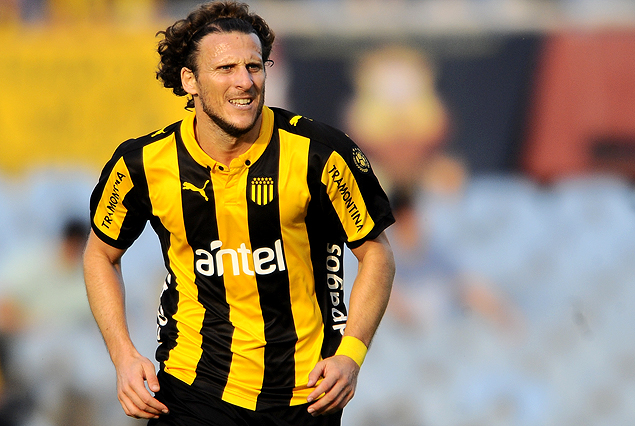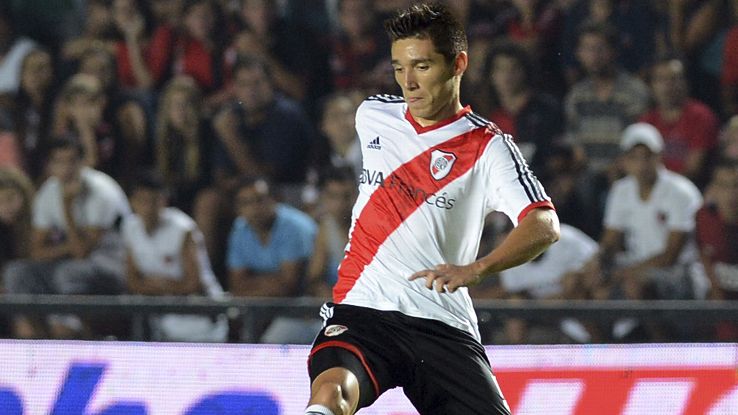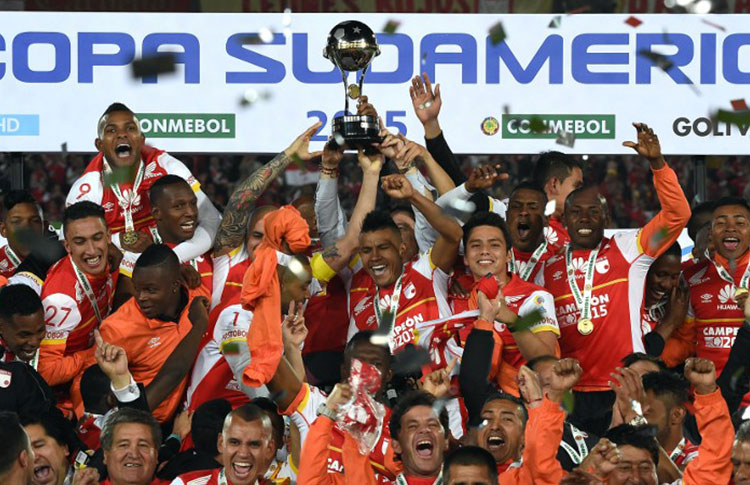With the 2017 Copa Libertadores under way, 47 teams are fighting for the most prestigious South American crown. While three of them have been eliminated during the first round of qualification already, others did not even get the chance to enter the competition due to numerous reasons. Here are the 12 former Libertadores champions that will not be there in 2017.
 |
| Independiente's players with the trophy in 1984. It was their last triumph to date (Photo: xenen.com.ar). |
Independiente
Constantly in the conversation for big titles, constantly coming up well short. It is the story of Argentina's Independiente in the past years. While it has not always been this way, the record winner of the Copa Libertadores (seven titles) has not won the title since 1984. Even their latest domestic title has nearly been forgotten ever since 2003. By finishing three points behind promoted Atlético Tucumán in the league, they missed out on the last qualification spot for the international stage and will instead compete in the Copa Sudamericana later on this year.
Racing Club
Staying in Argentina, Racing Club was included relatively often in the Copa Libertadores of previous seasons. Not this time around, as they played a very average season to finish in eleventh, well behind the required top 5 position. At least they gathered the final Sudamericana spot and will join their archrivals from next door in trying to win that one. Racing won the Libertadores once, all the way back in 1967.
Cruzeiro
Over to Brazil, a two-time winner of the competition will not be around this time. Despite a whopping eight spots for the association, Cruzeiro's highly disappointing 12th place finish saw them come up well short. Their most previous final appearance came in 1997, when they beat surprise side Sporting Cristal from Peru 1-0 on aggregate. Now, they can instead focus on their state championships and the Serie A later on.
Boca Juniors
After a double in Argentina, many expected the Boca Juniors to march on to the Copa Libertadores title as well. They did anything but that and got eliminated by outsider Independiente del Valle from Ecuador. In the Argentine Primera, they finished 17th and showcased a ton of problems throughout the year. At the end of it, club icon Carlos Tévez left for China as well. Will we see the six-time champion back in action as early as 2018?
Argentinos Juniors
 |
| Argentinos Juniors' team ahead of the final in 1985 (Photo: kaisermagazine.com). |
You cannot be much further away from the Copa Libertadores than Argentinos Juniors. Diego Maradona's club is currently playing in the second division. At least that has gone quite well for them after nearly half the season is over. They sit in second place, only two points behind Guillermo Brown. Their agenda includes a lot of steps ahead of a return to the international stage. In 1985, it took three finals to decide a winner between Juniors and América de Cali, with the Argentines coming out ahead on penalties.
São Paulo FC
São Paulo is one of the most popular teams on the continent, also due to their three successes in the competition. Led by iconic goalkeeper Rogério Ceni, they marched to their last title in July 2005. Their past year was less impressive, as they finished tenth in Brazil's Serie A. At least a semifinal appearance in last year's Copa Libertadores could calm the supporters, however Atlético Nacional were way too strong back then.
Vélez Sársfield
Vélez missed qualification by quite some margin. Their average year was not even enough to get into the Copa Sudamericana in 2017. You would not really expect the club at the top anyway, considering their latest Libertadores triumph came back in 1994. The aforementioned São Paulo FC was beaten on penalties, with the help of another goalkeeping legend: José Luis Chilavert.
Vasco da Gama
I promise there will be more countries than just Argentina and Brazil soon. For now, back to the North-East, where Vasco da Gama has just managed to return to the Serie A after a year in the second tier of Brazilian football. In 1998, they were in the middle of a sandwich consisting of three winners of the same country in a row. A young Juninho Pernambucano was a part of Vasco's midfield, before he went on to Europe for a great career. Ecuador's Barcelona had no answer, losing 1-4 on aggregate.
LDU Quito
Talking of Ecuador: LDU Quito was the first and only champion of the Copa Libertadores from Ecuador. Their 2008 triumph came on penalties against Fluminense. Lately, they have been more down than up and only finished sixth in their domestic league. It is quite likely that they will return to the competition sooner rather than later though, maybe as early as 2018?
Once Caldas
 |
| Once Caldas' ultimate triumph in 2004 (Photo: caracol.com.co) |
The Colombian headlines were written by Atlético Nacional most recently, but Once Caldas cannot be dismissed. In 2004, the club won the Copa Libertadores itself, on penalties against Boca Juniors. Their squad back in the days included players such as Elkin Soto, who went on to become valuable players in Europe. That has been the last hooray for quite some time either way, as they finished lowly in Colombia's Apertura and Finalización.
Internacional
Oh Inter, what happened to you? The two-time winner, most recently in 2010, suddenly finds itself in Brazil's second division following a horrendous season. While their chances to get promoted again soon are possibly quite high, the international stage could be in quite some distance for a few years. It is a shame, because their stadium and fans are made for Copa Libertadores nights.
Corinthians
Last name on the list is another big name from Brazil in Corinthians. The situation for them looks a lot less grim than for Internacional. After their whole team was ripped apart following their title a year ago, they still managed to find some sort of rhythm and finished only two points shy of a Libertadores spot. Able to concentrate on the league fully, it would not surprise to see them back in the competition as early as next year.






























